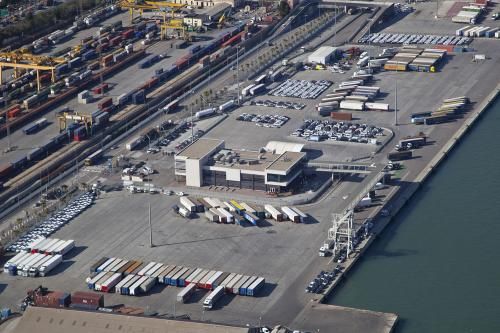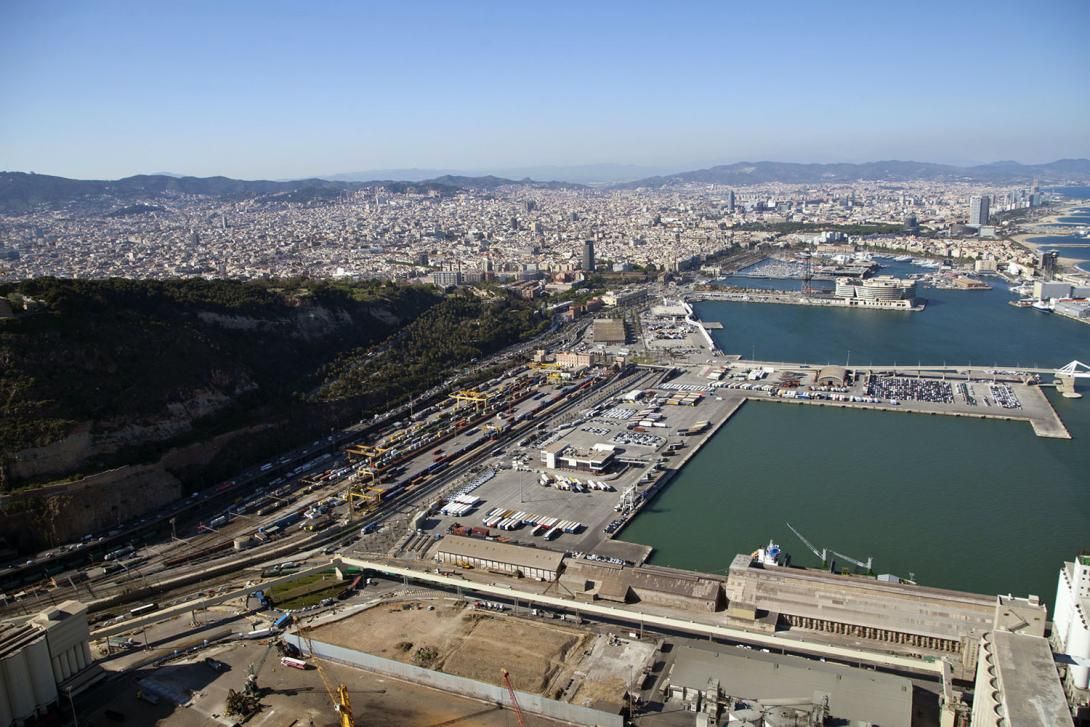
Project partners
States involved
The project
Project aimed at reinforcing long-distance coastal maritime traffic (Short Sea Shipping) in the Port of Barcelona through the construction of a new maritime station that will make it possible to offer a more economical, reliable, ecological mode of transport, and with guaranteed transit times, than road transport.
Greater competitiveness
Short sea transport is a key factor in the competitiveness of the Port of Barcelona and the construction of a new terminal will consolidate the port area as the hub of short-distance maritime transport in the Mediterranean, and the nerve centre of goods transport in Southern Europe, and will alleviate the situation of the current infrastructures already saturated. In addition, the adjacent railways will allow car manufacturers to transport their goods by rail instead of by road, thus increasing the competitiveness of the automotive sector.
Increased intermodal capacity
The new maritime terminal for the transhipment of rolled cargo (Ro-Ro) and for passengers, managed by Grimaldi Terminal Barcelona, will increase the intermodal capacity and efficiency of the Port of Barcelona. The new control accesses will improve the access of goods, will simplify customs processes in short-distance maritime transport, and will reorganise the traffic route, thus preventing heavy traffic from passing through the centre of the city.

Actions
The activities of the project have been:
- Construction of the new maritime station at the Costa wharf for the transhipment of Ro-Ro cargo and for passengers.
- Urbanisation of the Costa wharf with the consequent new accesses to the maritime station.
- Installation of access control such as an OCR system among others.
Results obtained
Some of the results obtained are:
- A new terminal specialised in SSS in the Port of Barcelona, better integrated into the city thanks to the new connections and the new traffic system. Currently with two terminals, the port area has a more efficient infrastructure for road traffic and passengers and contributes to the consolidation of the SSS as a viable alternative to road traffic that is more sustainable and economical.
- Improvement of the Short Sea Shipping lines between the Italian ports of Rome, Livorno and Savona, as well as with the port of Tangier, in Morocco, which contribute to the consolidation of maritime transport as a viable alternative, especially between Spain and Italy and the North of Africa.
- Increase in the modal transfer from road to rail and maritime transport.
- Increase in the internal capacity of the Port of Barcelona to manage short-distance maritime transport services.
- Improvement in the integration of short-distance transport in door-to-door freight transport services.
- Estimated decrease of 82% (about 2.7 billion euros) of Associated external costs such as pollution, accidents, congestion or noise pollution, compared to the external costs of road traffic.
The Motorways of the Sea as an alternative to road transport
The main objective is to promote short-distance maritime transport, especially the motorways of the sea, as an alternative mode of transport to the road. Thus contributing to the decongestion of land routes and bottlenecks that currently exist, and reducing pollution caused by road transport.



